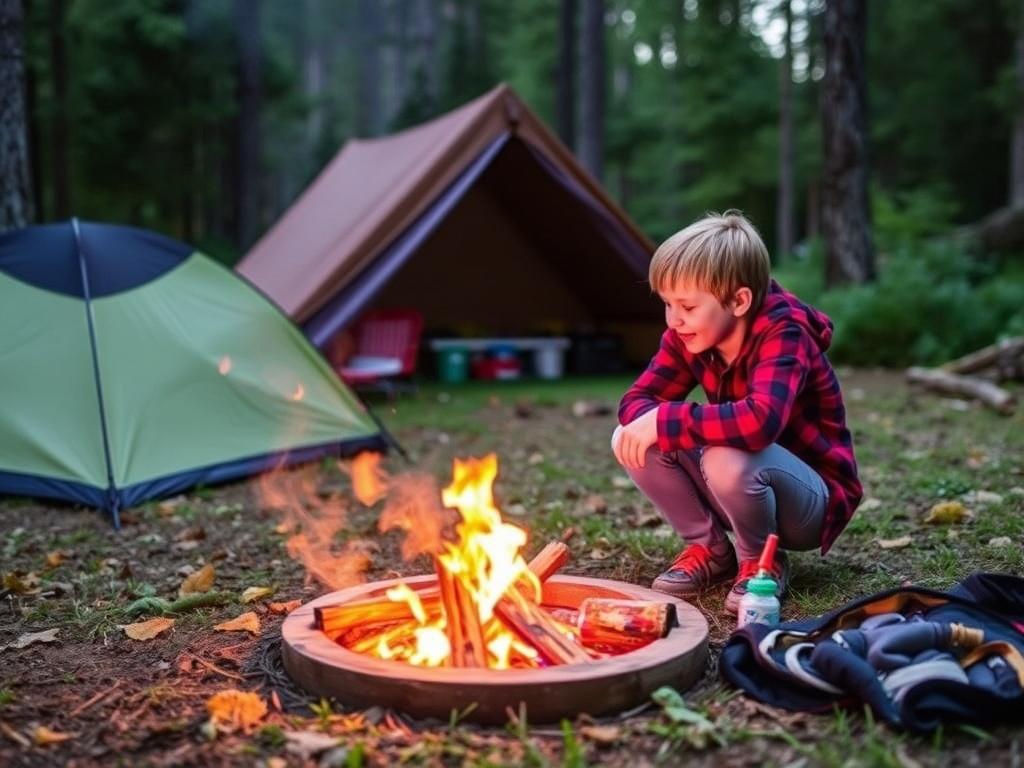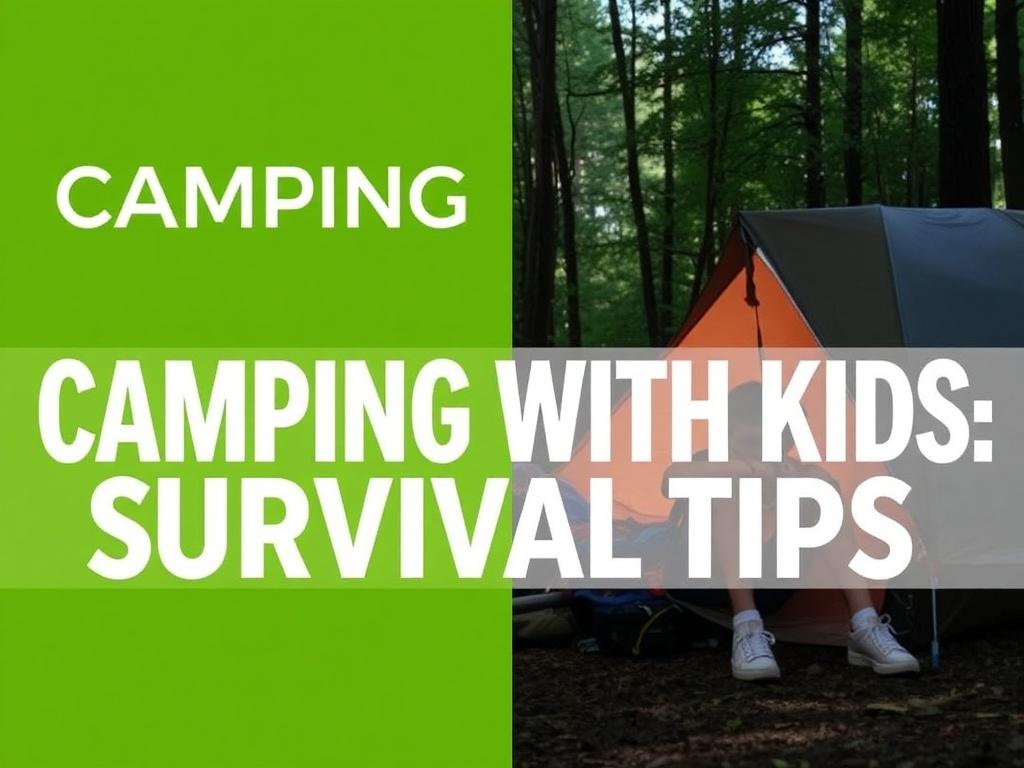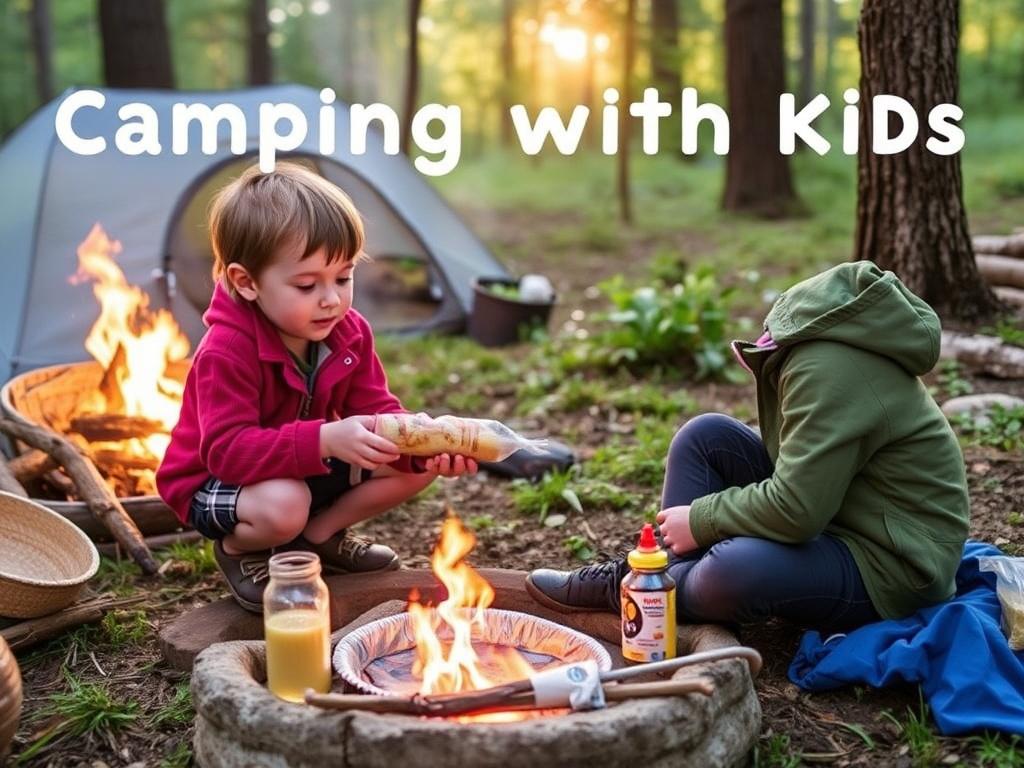SQLITE NOT INSTALLED
Camping with kids is an incredible way to reconnect with nature, enjoy quality family time, and create memories that last a lifetime. But let’s be honest—it can also be a bit overwhelming. From packing the right gear to keeping everyone entertained and safe, camping with little ones requires some thoughtful preparation and patience. Whether you’re a seasoned camper or new to the outdoor life, these survival tips will help you navigate the unique challenges of camping with children and transform your trip into a joyful, smooth experience.
Why Camping with Kids Is Worth the Effort

Picture this: the crackling sound of a campfire, star-filled skies, the smell of pine trees, and the laughter of kids as they explore the wilderness. Camping exposes your children to nature’s beauty, teaches them valuable life skills, and encourages curiosity and independence. It’s a chance to unplug from screens, hustle, and bustle, and simply slow down together.
Studies show that time spent outdoors benefits kids’ mental and physical health. It boosts creativity, reduces stress, and even improves concentration. So, yes, camping with kids takes work—but the rewards? Absolutely priceless.
Planning Your Camping Trip: The First Step to Success
Preparation is key, especially when camping with children. A well-planned trip helps manage expectations, avoid stress, and ensure everyone has fun. Let’s break down some essential factors to consider before setting out.
Choosing the Right Campsite
When camping with kids, comfort and safety come first. Look for family-friendly campsites featuring:
- Easy access to bathroom facilities and clean water
- Gentle terrain with open spaces for play
- Nearby hiking trails suitable for children
- Access to emergencies or ranger stations
- Proximity to fun attractions like lakes or visitor centers
Remember, the goal is to make the environment inviting and manageable for the little adventurers.
Creating a Flexible Itinerary
Kids thrive on routine but also love adventure. Try to strike a balance by planning activities while leaving space for spontaneous fun or rest. Include options like:
- Short nature hikes
- Storytelling by the fire
- Scavenger hunts
- Bird-watching or rock collecting
- Craft projects using natural materials
Making the day’s schedule too strict can create frustration, so flexibility is vital!
Packing Essentials: What You Really Need When Camping with Kids

Packing can be a challenge, especially with curious kids wanting to bring everything they own. But overpacking can become a burden. Here’s a guide to packing the essentials, ensuring you have what you need without the bulk.
Camping Gear: The Basics
| Item | Purpose | Tip for Camping with Kids |
|---|---|---|
| Tent | Provides shelter and a safe space to sleep | Choose a tent roomy enough for family and gear, with easy setup |
| Sleeping Bags | Keeps everyone warm during cooler nights | Pick weather-appropriate bags that fit each child comfortably |
| Sleeping Pads or Air Mattresses | Add comfort and insulation from the cold ground | Ensure each child has their own pad for better sleep quality |
| Camp Stove or Fire Starter | Allows cooking meals and boiling water | Pack kid-safe cookware and always supervise cooking |
| Flashlights and Headlamps | For navigating campsites at night | Bring extra batteries and consider glow sticks as child-friendly light sources |
| First Aid Kit | Essential for treating minor injuries | Include items specifically for kids, like adhesive bandages with fun designs |
Clothing and Personal Items
Kids quickly get dirty, wet, or chilly. Pack versatile, layered clothing that works for the weather:
- Lightweight, breathable shirts and pants
- Warm sweaters or jackets for nighttime
- Waterproof rain gear
- Extra socks and underwear
- Comfortable shoes and boots for trails
- Sun hats and sunglasses
Don’t forget sunscreen and insect repellent formulated for children’s sensitive skin.
Food and Snacks: Keeping Everyone Energized

Hungry kids are cranky kids! Nutrition and hydration are critical when camping, especially for active youngsters.
Easy and Nutritious Meal Ideas
Opt for meals that are simple to prepare over a campfire or stove yet filled with the nutrients needed for stamina. Here are some favorites:
- Oatmeal with fresh fruit for breakfast
- Sandwiches with protein-rich fillings like peanut butter or turkey
- Veggie stir-fry or foil packet meals cooked over the fire
- Instant rice or pasta with pre-made sauces
- Marshmallows or s’mores for a special treat
Snack Ideas for Kids on the Go
| Snack | Why It’s Good for Camping | Kid Appeal |
|---|---|---|
| Trail Mix | Lightweight, energizing combination of nuts, seeds, and dried fruit | Sweet and crunchy, customizable |
| Fresh Fruit | Hydrating and packed with vitamins | Sweet and juicy, easy to eat |
| Granola Bars | Handy, no-mess energy boost | Comes in many flavors kids love |
| Cheese Cubes and Crackers | Provides protein and satisfying texture | Tasty and familiar snack |
| Veggie Sticks with Dip | Encourages healthy eating habits | Fun to dip, colorful and crunchy |
Remember to bring plenty of water bottles and encourage frequent sipping to stay hydrated.
Safety First: Protecting Your Little Explorers
Nothing is more important than keeping your kids safe in the wilderness. Being proactive and prepared can prevent accidents and help you stay calm in emergencies.
Teach Basic Outdoor Safety Rules
Before your trip, have a family meeting to discuss important guidelines like:
- Staying within sight of adults at all times
- No wandering off alone
- How to identify and avoid harmful plants like poison ivy
- What to do if separated from the group (stay put and call out)
- Respecting wildlife: observe but don’t touch or feed animals
Emergency Preparedness
Pack a comprehensive first aid kit and know basic first aid skills such as treating cuts, burns, insect bites, and allergic reactions. Always have emergency contact numbers handy and a way to reach help if cell service is spotty (consider a satellite messenger or personal locator beacon in remote areas).
You might also want to carry a whistle for your kids—they’re small but can be life-saving tools if a child gets lost, signaling to you or other campers.
Entertainment and Education: Keeping Kids Engaged Outdoors
Kids have short attention spans and lots of energy. Finding ways to keep them entertained and mentally stimulated is essential to a pleasant camping experience.
Games and Activities
Here are some fun ideas to incorporate into your camping trip:
- Nature Scavenger Hunt: Create a list of natural items like pinecones, feathers, or specific leaves. Kids can explore to find them, learning about the environment along the way.
- Campfire Storytelling: Let each family member take turns telling stories or sharing what they liked about the day.
- Star Gazing: Bring a simple star chart or app to identify constellations, making night-time magical.
- Rock Painting: Collect smooth stones and decorate them with non-toxic paints or markers.
- Bug Hunting: Use magnifying glasses or bug catchers to observe insects safely.
Encouraging Learning in Nature
Camping is a goldmine for informal education. Encourage your kids to observe, ask questions, and explore. The following themes can be woven into your trip:
- Plant life cycles and identification
- Animal tracks and behavior
- Weather patterns and safety
- Environmental conservation and respect
- Basic survival skills like building a shelter or reading a compass
Fostering a sense of wonder and respect for nature enriches the camping experience and plants the seeds for lifelong stewardship.
Dealing with Challenges: Common Issues and How to Handle Them
Even with the best preparations, camping with kids can come with hurdles. Anticipating common problems helps you stay calm and make quick adjustments.
Managing Bad Weather
Rain or sudden cold snaps can dampen the trip—literally. To be ready:
- Pack waterproof clothing and shelter tarps
- Have indoor activities planned, like storytelling or board games
- Keep everyone warm and dry to prevent hypothermia
- Teach kids to appreciate nature in all weather, making the experience unique
Coping with Fussy or Tired Kids
Physical exertion and unfamiliar environments can tire or irritate children quickly. Help ease discomforts by:
- Regularly checking in on how they are feeling
- Scheduling plenty of breaks and quiet time
- Keeping favorite comfort items nearby
- Using positive reinforcement to encourage good behavior
- Being patient and flexible
Insect Bites and Minor Injuries
Bug bites can be annoying, and minor scrapes are almost inevitable. Use these tips:
- Apply child-safe insect repellent and mosquito nets if needed
- Clean wounds promptly and cover with adhesive bandages
- Bring soothing creams or homeopathic remedies
- Keep kids calm and occupied to distract from discomfort
Wrapping Up Your Trip: Encouraging Reflection and Creating Traditions
After the tents are packed, the fire is cold, and everyone is home safe and sound, the experience is far from over. Make time to reflect on your adventure, celebrate successes, and learn from challenges.
Family Debriefing
Gather around the dinner table or living room and ask your kids what their favorite moments were, what they found hard, or what they’d like to do differently next time. This helps build communication and anticipation for future trips.
Creating Camping Traditions
Many families choose to make camping an annual tradition, complete with favorite recipes, games, or songs. These rituals strengthen family bonds and create a sense of continuity.
- Annual camping dates
- Signature campfire recipes
- Making a family camping scrapbook or photo album
- Developing a special campfire song or chant
- Passing down outdoor survival skills as children grow
Final Thoughts: Embracing the Adventure of Camping with Kids
Camping with kids can be one of the most rewarding experiences for a family. It teaches resilience, patience, appreciation for nature, and cooperation. The key to success is preparation, keeping expectations flexible, and embracing the quirks and surprises that come with the territory.
Remember, it’s not about perfection—it’s about the journey and the memories you create together. So pack your tent and sleeping bags, bring plenty of snacks, and step boldly into the great outdoors with your little explorers. The adventure awaits!
